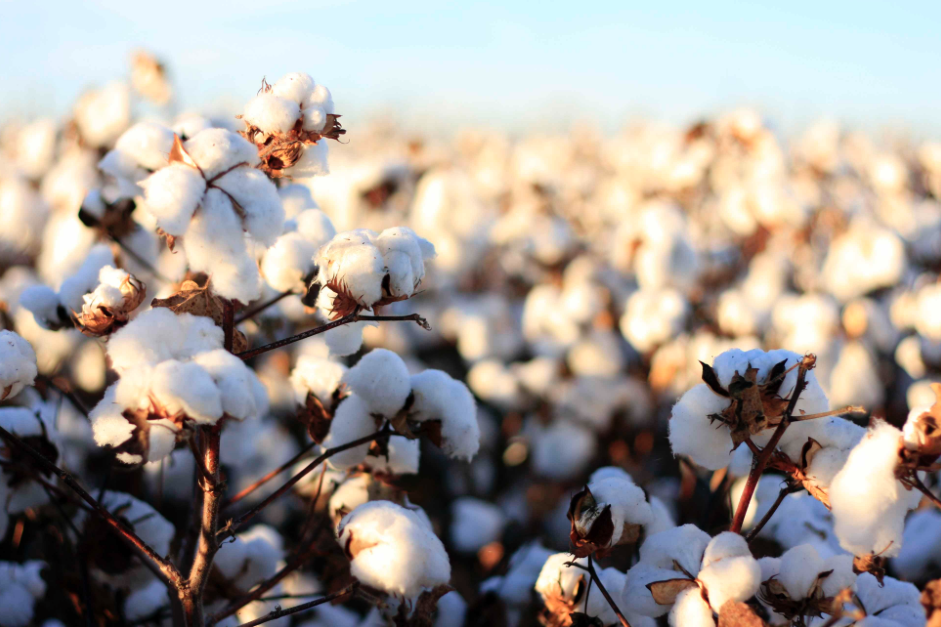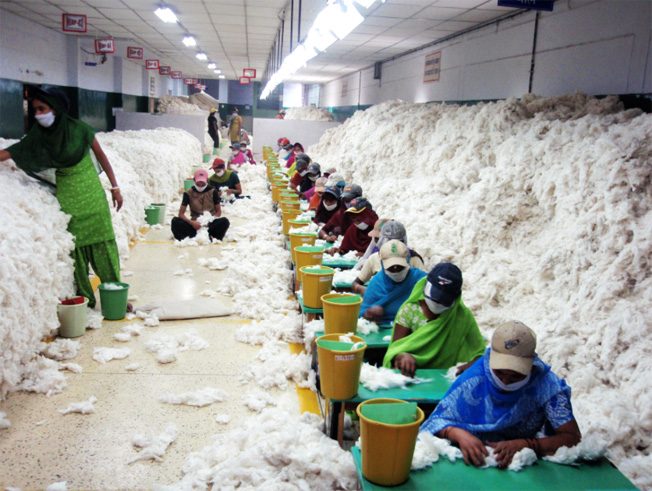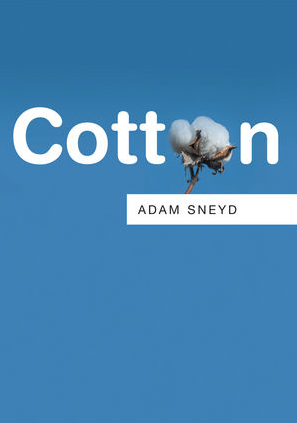Cotton: it's a dirty business
Clean, fresh, crisp, natural... these are adjectives used about that most ubiquitous of fabrics, cotton. But in his book, Cotton, Canadian academic Adam Sneyd explores the dark side of global cotton production.

It's well known that conventional cotton production is an environmental nightmare. But many businesses decline to use organic cotton or Better Cotton Initiative (BCI) cotton and we consumers let them off the hook by not demanding it. Well, read Adam Sneyd's book Cotton, and you may no longer feel indifferent to the provenance of that cotton t-shirt you're wearing or the cotton runner on your table. Published by Polity Books, £14.99.
Fresh pure cotton, cool crisp cotton, 400 thread count Egyptian cotton...the fabric is invariably presented as a healthy and natural product. And we buy it in the belief that it's good stuff - after all cotton plants bring forth their bounty year in, year out.
But while conventional cotton may look and feel divine, it's the product of a global industry that uses huge quantities of pesticides which are harmful to the people who pick cotton and to the environment; and it requires millions of gallons of water to irrigate it, water in poor countries that is often scarce should go to people for drinking, cooking and washing.
In his latest book, Cotton, academic Adam Sneyd looks at the politics and money driving the industry and finds a story of exploitation and hardship. He explores the power politics behind production as major corporate players and countries across Africa, Asia and the Americas compete to control it.
And he's not overly confident that calls for 'better' cotton farming practices that followed the sweatshop scandal exposés and factory collapse disasters (eg the 2013 Rana Plaza catastrophe in the Bangladeshi capital Dhaka) will result in improvement in the lives of cotton pickers in Africa and Asia, because what big business wants is business-as-usual.
He says the media focuses too much on pricing and farmer subsidies and doesn't cover the voices of an alternative global community that is seeking fundamentally to transform the way cotton is farmed. Looking at the cotton industry from the local and the global perspectives, Sneyd's book takes you on an illuminating journey through 'the multifaceted and often grubby politics of the fluffy white stuff in the world economy'. And he argues that in the interests of sustainability, development and humanitarianism, we all need to get involved.
Soil Association - find out why organic cotton matters
Better Cotton Initiative - Ikea is a major brand that uses BCI cotton
Adam Sneyd is a lecturer in the Political Science Department at the University of Guelph in south-west Ontario. He specialises in the political economy of commodities, particularly in sub-Saharan Africa.

